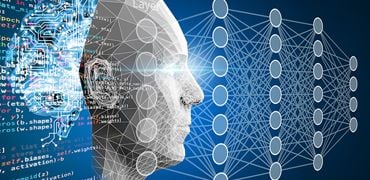What is Programming and How to Learn It: A 7-Step Guide to Success

In today’s digitally driven world, the impact of programming can be seen everywhere. It is the driving force behind the apps on your smartphones, the websites you browse, and the technology that powers our daily lives. The significance of programming becomes even more apparent when you consider that global IT spending is projected to reach an astonishing $4.6 trillion by 2023. Paradoxically, as the demand for tech solutions grows, so does the shortage of skilled programmers. This talent gap is projected to persist until at least 2026, creating a remarkable opportunity for anyone interested in starting or transitioning their careers.
So, what exactly is programming, and how can you begin learning coding languages? Read along to find out all there is to know.
In the blog, we cover the following topics:
- What is Programming?
- What is the Importance of Programming in Today’s World?
- Which Programming Language Should I Start With as a Beginner?
- How to Learn Programming Online?
- Frequently Asked Questions About Programming
- Why Emeritus Coding Courses are Popular Among Programmers
What is Programming?
 Programming is the process of providing a computer with a clear and specific set of instructions to execute. In essence, it serves as a form of communication between humans and computers, where humans create a set of instructions, known as code, using a language that computers can understand. It provides the means to harness the computational power of computers to accomplish a wide range of tasks and solve diverse problems.
Programming is the process of providing a computer with a clear and specific set of instructions to execute. In essence, it serves as a form of communication between humans and computers, where humans create a set of instructions, known as code, using a language that computers can understand. It provides the means to harness the computational power of computers to accomplish a wide range of tasks and solve diverse problems.
What is the Importance of Programming in Today’s World?
Here are 10 key reasons why programming is of immense significance:
- Enables the automation of repetitive tasks, saving time and reducing errors.
- Enhances the functionality of applications and software, making them more versatile and powerful.
- Allows for precise and error-free task execution.
- Plays a pivotal role in creating software, apps, and technology that drive progress across diverse industries.
- Assists businesses in streamlining processes and enhancing products and services, thus ensuring competitiveness in the digital age.
- Provides efficient solutions to complex problems in fields such as health care, engineering, and research.
- Facilitates seamless communication between devices, systems, and people, underpinning the operation of the Internet and digital platforms.
- Contributes to improving accessibility for individuals with disabilities through assistive technologies and adaptive interfaces.
- Fuels innovation by enabling the development of new products, processes, and business models, driving entrepreneurial and creative endeavors.
- Empowers the prediction of future trends and outcomes through data analysis and predictive modeling.
Which Programming Language Should I Start With as a Beginner?
According to Stack Overflow’s developer survey for 2023 of over 90,000 developers, here are the top 10 programming languages that stand out as popular choices for those embarking on their coding journey:
1. HTML/CSS
Markup and styling languages for web development.
2. JavaScript
Versatile scripting language for dynamic web content.
3. Python
High-level language is known for simplicity and versatility.
4. SQL
A standard language for managing relational databases.
5. Java
Object-oriented language used for various applications.
6. C++
Powerful language for system software and games.
7. C
Foundational language is known for efficiency and portability.
8. Bash/Shell
Command language for Unix-based systems.
9. TypeScript
Superset of JavaScript for robust code organization.
10. C#
Microsoft-backed language for Windows applications.
However, please remember the choice ultimately depends on individual interests and the specific projects coders aim to undertake.
ALSO READ: What Coding Language Should I Learn? Top 22 Codings for Success
How to Learn Programming Online?
Learning programming online can be an excellent way to upskill. Here are some steps to follow to navigate the path to a coding career effectively:
1. Define Programming Goals
 Begin by identifying the coding languages that align with individual goals and interests.
Begin by identifying the coding languages that align with individual goals and interests.
2. Choose a Suitable Online Course
Find an online course that matches one’s skill level and objectives. For starters, a quality course should not only teach coding but also emphasize algorithmic thinking, problem-solving, and debugging techniques.
ALSO READ: Our Best Coding Courses: Find One That’s Perfect For You
3. Master the Fundamentals
Develop a strong foundation by thoroughly grasping the fundamental concepts of programming. Moreover, a solid understanding of these basics will empower beginners to tackle complex challenges confidently.
4. Hands-On Project Work
Additionally, apply your knowledge by working on practical coding projects.
5. Collaborate and Share
Connect with fellow programmers. Engage in collaborative coding efforts and also learn from others’ experiences.
6. Seek Feedback
Join coding communities or seek constructive feedback from experienced developers to gain valuable insights and identify areas for improvement.
7. Practice, Practice, Practice
Finally, consistent practice is key to honing your skills. Dedicate regular time to coding exercises, challenges, and small projects.
ALSO READ: A Step-by-Step Guide on How to Become a Successful Programmer
Frequently Asked Questions
1. Are There Any Prerequisites or Basic Knowledge Required to Learn Programming?
Programming is a skill that individuals with diverse levels of skills, experience, and backgrounds can acquire. Thus, no specific prerequisites or prior knowledge are typically required to begin learning coding. However, possessing a basic understanding of mathematics, data structures, algorithms, and problem-solving can provide a significant advantage when delving into this field. Furthermore, it’s essential to consider that certain programming languages, such as HTML, JavaScript, C, and C++, are more beginner-friendly compared to more advanced coding languages.
2. What Common Challenges do Beginners Face?
Here are the five most common challenges that beginners face in programming:
- Failing to fully understand user requirements and translate them into effective solutions results in inefficient or inadequate software.
- Estimating the time required for coding tasks.
- Debugging techniques, that is, identifying and fixing code errors, is time-consuming and requires patience.
- A lack of a clear idea of the desired software development and design because a well-thought-out design is crucial for efficient coding.
- Lastly, staying up-to-date with the latest tools and languages can be challenging.
3. Is Programming a Difficult Skill to Acquire?
This is undeniably a challenging skill to acquire but is far from impossible. One can learn and master coding with dedication and hard work to build solid foundational knowledge. Additionally, consistency in practice and a commitment to continuous upskilling are key.
4. How Long Does it Take to Learn Programming?
You can acquire basic coding skills in as little as three to four months. However, the learning process can take anywhere between six months to a year to develop a deeper understanding and become proficient.
ALSO READ: Start Your Programming Career: The Best Entry-Level Programming Jobs
Why Emeritus Coding Courses are Popular Among Programmers
If you’re looking for an excellent online coding program that aligns with your goals, consider choosing Emeritus’ coding courses. Moreover, these courses are developed in collaboration with top universities, offering a structured, flexible, and high-quality approach to learning. Additionally, by enrolling, you acquire essential skills and gain access to a thriving online community and networking opportunities. Furthermore, whether you’re a beginner or an experienced coder, these courses can empower you to excel, making them a popular choice for all skill levels.
In conclusion, we trust that this guide has provided you with valuable insights to initiate your journey in this field. Furthermore, bear in mind that consistent practice, algorithmic thinking, and staying up-to-date are the keys to becoming a pro at coding.
Write to us at content@emeritus.org














